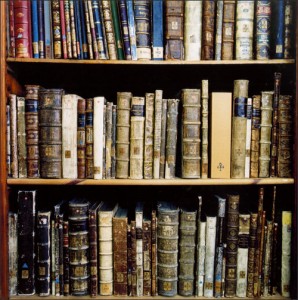
You can make a range of excellent arguments for the value of the study of religion. In my department, we have been highlighting the value of the critical and creative thought that many of our students develop in our courses, their understanding of human behavior and social formation, and the recognition of the power of labels to discipline action and construct identifications, to name a few.
One argument that I came across recently, published on Religion Dispatches, though, seems to have missed many of the skills described above. Drawing on the Pew Forum statistic that 84% of the world’s population has a religious affiliation, the argument goes that studying theology helps the student understand the deeper motivations and conceptions of the vast majority of the people on the globe. The jump is huge from estimating that most people report having a religious affiliation to the assertion that
Broad theological questions like, “What is your purpose in creation?” and more specific ones like, “What role does God play in your understanding of your family life?” get to the heart of people’s self-perceptions and motivations.
While the label “religion” often connects to conflicts and cooperation throughout the world on the individual, institutional, and national levels, among others, that does not mean that theology, whether carefully articulated or intuitively understood, is the primary concern for most people in their daily lives. Such assertions reflect a failure to understanding the complicated nature of religious affiliation, where people who affiliate with the same religious label not only argue vehemently about theological elements associated with that label but also may, or may not, incorporate the theological conceptions that they accept into various aspects of their lives.
Photo: Pouya sh at the English language Wikipedia [GFDL (http://www.gnu.org/copyleft/fdl.html) or CC-BY-SA-3.0 (http://creativecommons.org/licenses/by-sa/3.0/)], via Wikimedia Commons
